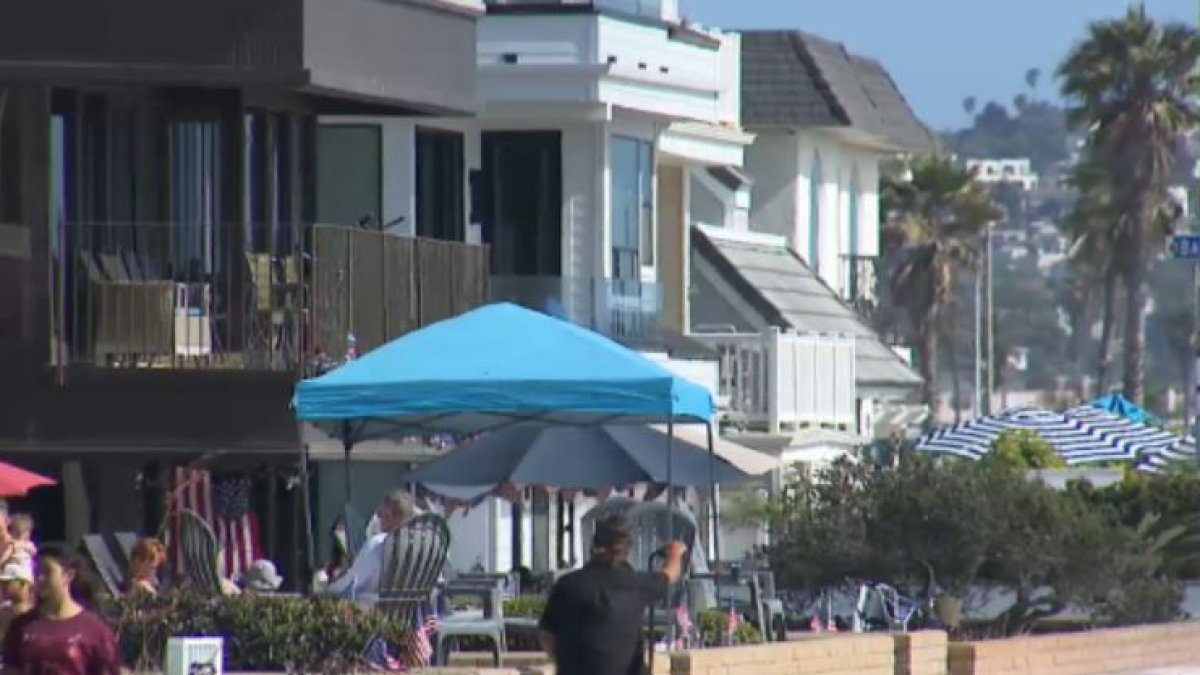Starting Tuesday short-term rental property owners will be able to apply for a tier four occupancy license.
Applications will be limited to a 45-day period that will end on August 15th.
Existing license holders are eligible to apply to be added to the whole home short-term rental list, also known as Tier 4 list. If they are approved, they will have to cancel their existing lower-tier license.
The city closed applications more than two years ago because it had reached capacity.
“It’s probably due to the fact that so many people have been placed out of the market so places opened up,” Marty Zimmerman said.
Zimmerman said the scale of short-term vacation rentals has grown so much, it has priced some locals out of the housing market, especially at beachfront locations like Mission Beach.
“The place behind me is the place we had to sell because taxes became so ridiculous and the new owner said, yeah, we’re going to double the rents,” Zimmerman said.
When he sold this apartment complex, 20 people had to find a new place to live, including some who lived there for nearly 40 years.
“They were in tears, literally like where am I going to go?… and I go, I wish I could help you, I don’t know. I don’t have the money to keep the place running,” Zimmerman said.
Zimmerman said he remembers when short-term vacation rentals used to be seasonal, but said in the last few years that has changed.
“The cost of doing business in San Diego is so high, that you have to either raise the rents, or you sell,” he said.
Gary Katz helped draft some of the short-term residential occupancy ordinances with various groups.
He said the STRO Ordinance was intended to encourage accountability for vacation rentals and set a cap on the amount of rentals.
According to city data, Mission Beach has the largest percentage of Short-term rentals at 30 percent, compared to the rest of San Diego County.
Katz said having a huge amount of short-term vacation rental properties in one neighborhood erodes the sense of community.
“It makes it less of a neighborhood and more of a hotel and I think a lot of the properties here are treated as hotels, and the people that vacation here, treat the area as if it was their playground to use and abuse,” Katz said.
Katz said when the city initiated the short-term vacation rental licenses, there were a number of violations of the ordinance that went unenforced.
“I think this is a budgetary issue, if the city is really concerned about budget, enforce it. If you have laws on the book and property owners that are violating a clear ordinance, enforce that, charge the maximum amount of fines, and it will help with compliance and it will help the budget,” Katz said.
Jay Goldberg is a short-term rental compliance watchdog.
He used the city’s short-term rental license database and the country’s property parcel data to keep track of the number of units at each property that have licenses.
He said short-term rentals have a significant impact on the availability of housing for locals.
“It’s attractive to investors to overbid for it because the income for Airbnb is so much higher than for a local renter,” Jay Goldberg said.
Goldberg said 50 percent of short-term rentals in San Diego are one to two bed rooms that could be used for locals.
“I would like to see them cap the number of units in a building that can be used as short-term rentals, if it’s one owner that owns the whole building,” Goldberg said.
Goldberg said the city should hold corporations that own short-term rentals accountable when they fail to comply with the ordinance.
In a statement to NBC 7 Councilmember Jennifer Campbell wrote in part, “I am committed to continuing to foster a positive and respectful relationship between San Diego residents and visitors as we enter this next phase of licensing.”
